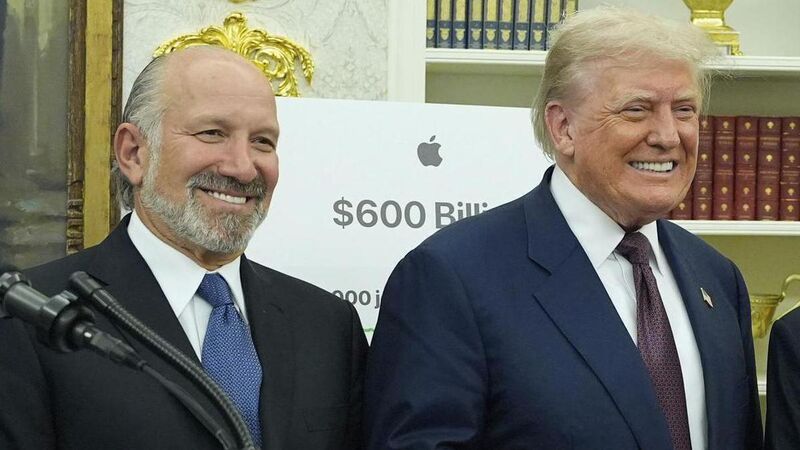Higher tariffs will bring in $50bn a month into US coffers, claims Lutnick

US commerce secretary Howard Lutnick with president Donald Trump in Washinton on Wednesday night. On Thursday, Mr Lutnick said he expects the country is heading towards $50bn (€42bn) billion a month in tariff revenues. Picture: AP Photo/Alex Brandon
US commerce secretary Howard Lutnick said on Thursday he expects the country is heading towards $50bn (€42bn) billion a month in tariff revenues as higher levies on imports from dozens of countries kick in.
"Then you're going to get the semiconductors, you're going to get pharmaceuticals, you're going to get all sorts of additional tariff money coming in," Mr Lutnick said in an interview with Fox Business Network.











